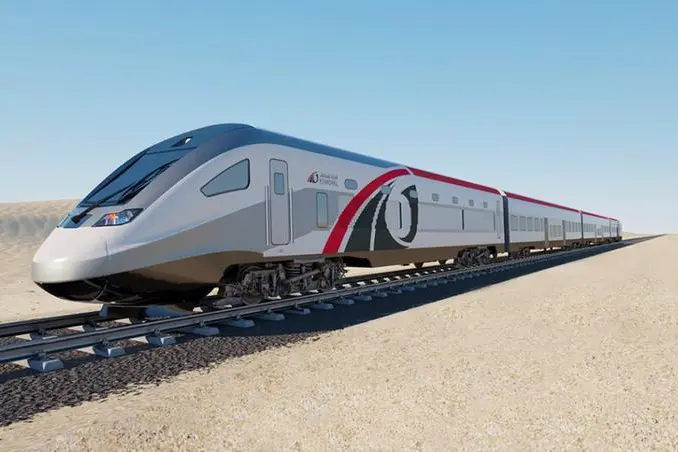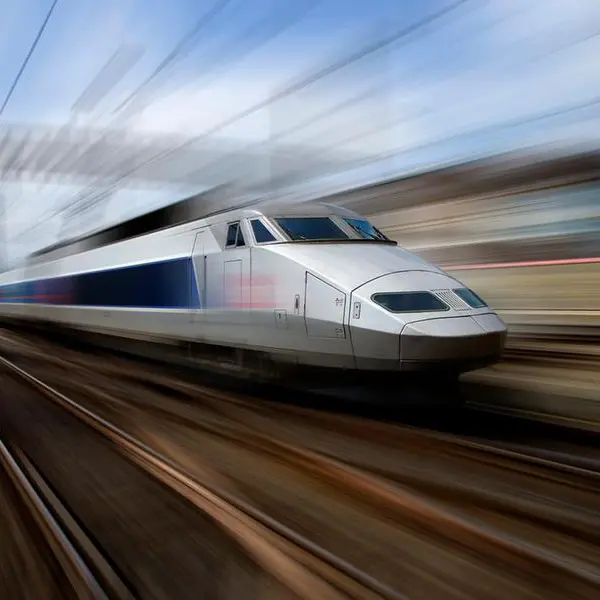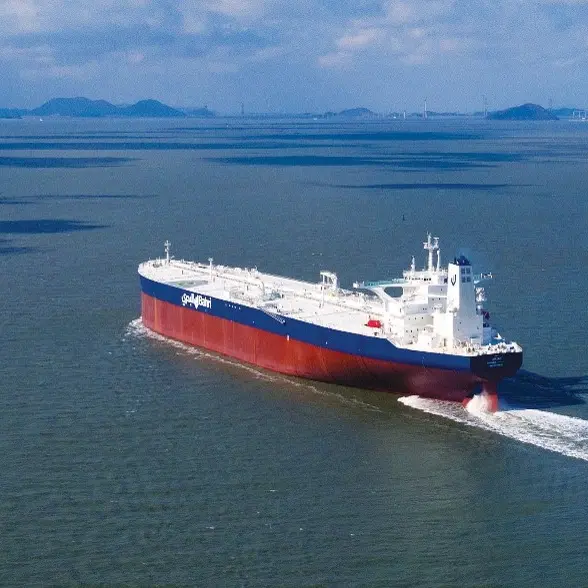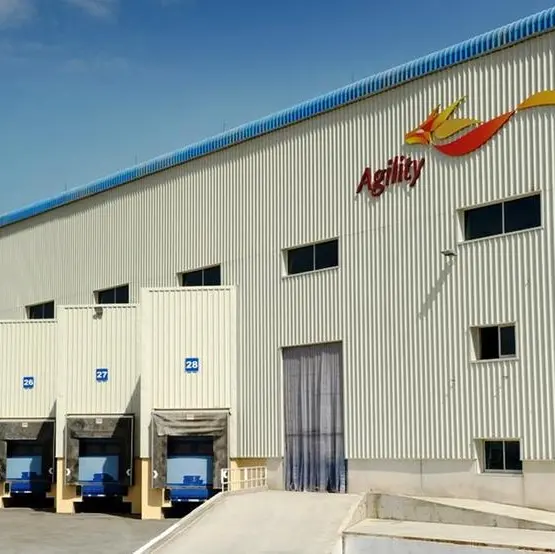PHOTO
DUBAI - The Board of Directors of Oman Rail-Etihad Rail JV Company, a joint venture between Oman Rail, the developer and operator of the Oman national Rail Network, and Etihad Rail, the developer and operator of the UAE National Rail Network, held its inaugural meeting in Dubai, two days after signing an agreement to form the company.
The signing ceremony took place on the sidelines of President His Highness Sheikh Mohamed bin Zayed Al Nahyan’s visit to Oman.
The Board of Directors includes Suhail bin Mohammed Al Mazrouei, Minister of Energy and Infrastructure; Said bin Hamoud Al Maawali, Minister of Transport, Communications and Information Technology of Oman; Sheikh Nasser Sulaiman Al Harthy, Acting Vice President of Operations Affairs at Oman Investment Authority and Chairman of the Board of Directors of Asyad Group; Saeed Al Zaabi, Chairman of the Board of Directors of Etihad Rail Mobility; Abdulrahman Salim Al Hatmi, Group CEO of Asyad Group, and Shadi Malak, CEO of Etihad Rail.
The Board members commended the wise leadership of the two countries for their unwavering support and strategic vision towards enhancing cooperation and joint action between the two countries across various fields. They also praised the leadership’s guidance and direction in the establishment of the joint venture to build and operate a railway network connecting Sohar Port with the UAE National Rail Network. They described it as an extension of the long-standing collaboration of the Sultanate of Oman and the UAE, as they both seek to create new prospects in the infrastructure, transport, and logistics industries by connecting the two countries via rail in a manner that promotes trade and social cohesion.
During the meeting, the Board of Directors discussed the implementation plans, including technical studies and architectural design, as well as environmental studies for routes, the business model and the commercial affairs of the joint venture.
Emphasis was placed on the importance of fast-tracking the execution of the project. The Board also committed to adopting the highest global standards for security, safety, and sustainability throughout the development of the network, which will extend for 303 kilometres, to provide safe and fast passenger transport and freight services. The network will contribute to the growth of the two countries’ economies, and will improve the efficiency of supply chains whilst facilitating cross-border trade by linking commercial ports to the railway network.
The Board of Directors also appointed Ahmed Al Hashemi as CEO of Oman Rail-Etihad Rail JV Company, and Mohammed bin Zahran Al Mahruqi as Deputy CEO.
Al Mazrouei said that establishing the joint venture was in line with both leaderships’ directives for achieving sustainable development by elevating the transport and infrastructure sectors to higher levels, whilst supporting economic and commercial growth.
“The joint railway network will advance the land transport system between the two countries in line with the best-in-class criteria and standards, providing safe, reliable, and sustainable transportation, which in turn, will further facilitate connectivity between industrial and commercial centres, and cement the long-standing social cohesion between the two countries,” he noted.
For his part, Al Maawali commented, “The strategic initiative to develop a railway network between the Sultanate of Oman and the UAE would cement the strong brotherly ties between the two countries and would also reflect their joint efforts to achieve social and economic integration.”
“Through this partnership and the logistics progress it will bring about, various economic and trade activities will reap several benefits, creating new opportunities and providing high-quality transport solutions that will contribute to establishing a connection between Sohar and the Omani free zone, with vital economic and industrial zones in the UAE,” he explained.
The US$3 billion railway network will contribute to the growth of the two countries’ national economies and improve the efficiency of supply chains whilst facilitating cross-border trade by linking commercial ports to the railway network.





















